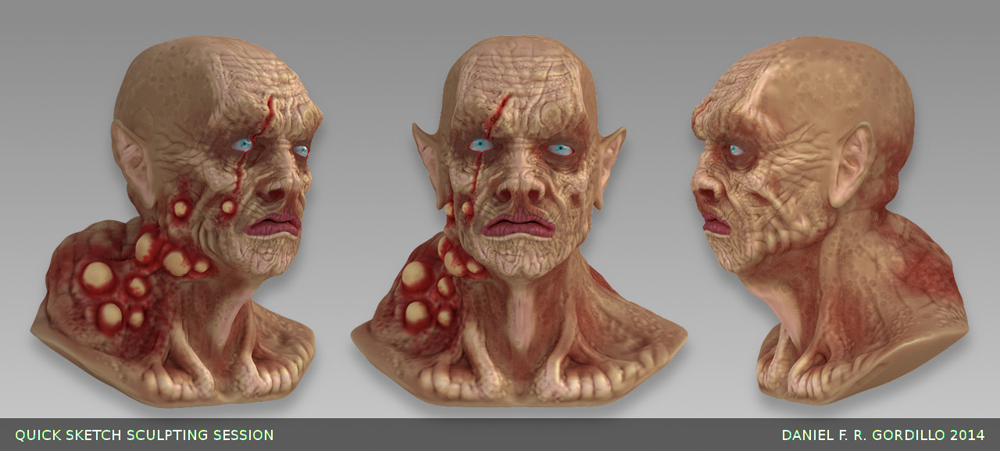Artist interview: Daniel Gordillo
13 Mar 2015
We are going to America for our next interview, o maybe not that much. Daniel Gordillo is a Mexican artist now based in our home city, Valencia. He has worked on multiple fields: art, illustration, 3D modelling and animation, and web development. He is also one of the organizers behind Societat Valenciana de Blender, where he promotes the use of open source software among 3D artists.

How did did the road began for you to get into illustration and 3D art?
I've been drawing since I can remember, and it seems my interest on the less orthodox ways of art came factory-installed: when I was 5, I was already shocking the nuns from the catholic school I was at with my drawings. When I was 18 I began studying graphic design at Iberoamerican University, but I changed to Plastic Arts on Guanajuato University. I got my PROMOE grant there to come to Valencia and study at the Fine Arts School at Universidad Politecnica.
I've been in diverse art exhibition and projects since then, but I moved away from the art world in 2005, mainly because of my work at publicity and design. I'm now trying to get back to a more art-focused line of work, combined with my humble open-source software "evangelism" efforts.
I think the reason I ended on 3D art is that I needed to do more creative work than design and web development, but I didn't want to fully go back to the ART (with capital letters) circuit and galleries.
You work on diverse fields: art, illustration, 3D modelling and Web Development. Is it easy to combine the creative side with the technical side? Do you think that more artists should do that?
Nowadays, a lot of tasks on computer packages of animation, modelling or digital illustration can be automated via code, or you can create shapes and forms with parametric design that would be insanely hard to create "by hand" (well, if you can say "by hand" when talking about digital art).
It is not an imperative, but the artist who is not afraid to use maths and formulas has a terrific advantage from the rest.

You were born in Mexico but you have been working for years in Spain. What differences did you find between this two markets for an artist to earn a living?
I've been lucky enough to be both in the art gallery world and the "industrial art" world (publicity and enterntainment). Spain has got exceptionally high level artists on animation, 3D modelling and illustration, and the CGI and videogame industry worldwide has noticed that. There are a lot of spanish studios designing videogames or making apps, and despite the economic crisis these have seemed to keep up.
But, it seems to me that to be this kind of "applied" artist is the only path in Spain to be respected and valued as an artist. Despite the "shocking" prices on events like ARCO, which the TV news remember us year after year, I always felt that in Mexico the artist was a lot more valued in society than in Spain. I can't say it happens everywhere in Latin America, but the plastic artist is even sometimes seen as a short of "shaman". But even if in Mexico the traditional art is quite a stable market, it has entered too late on the digital entertainment industry: most of the product is "imported", and there are barely news from mexican studios or companies working on that. But that is slowly changing!
What good (and bad) things do you feel the Internet and the new technologies have brought to your profession?
The good side is the biggest, no doubt: access to information, both the one you can get and the one you can offer. 20 years ago, Internet was just beginning and there were only a bunch of crazy people uploading their stuff on Angelfire, Xoom or Geocities. Nowadays, the amount of information you can get and the people that can see your work worldwide is just incredible.
The bad side: you sometimes forget about pencil and paper! You begin neglecting the things that are far from the screen, and this does not only happen to digital artists. The whole world is paying more attention to a small screen that lookin where they are walking. You have to disconnect from time to time.
And last, but not least: any advice for aspiring artists just starting up their careers?
Yes: don't stop learning. It is a fast evolving world and what is standard today can be obsolete in a year or a few months.
Thank you a lot, Daniel!
back to list
